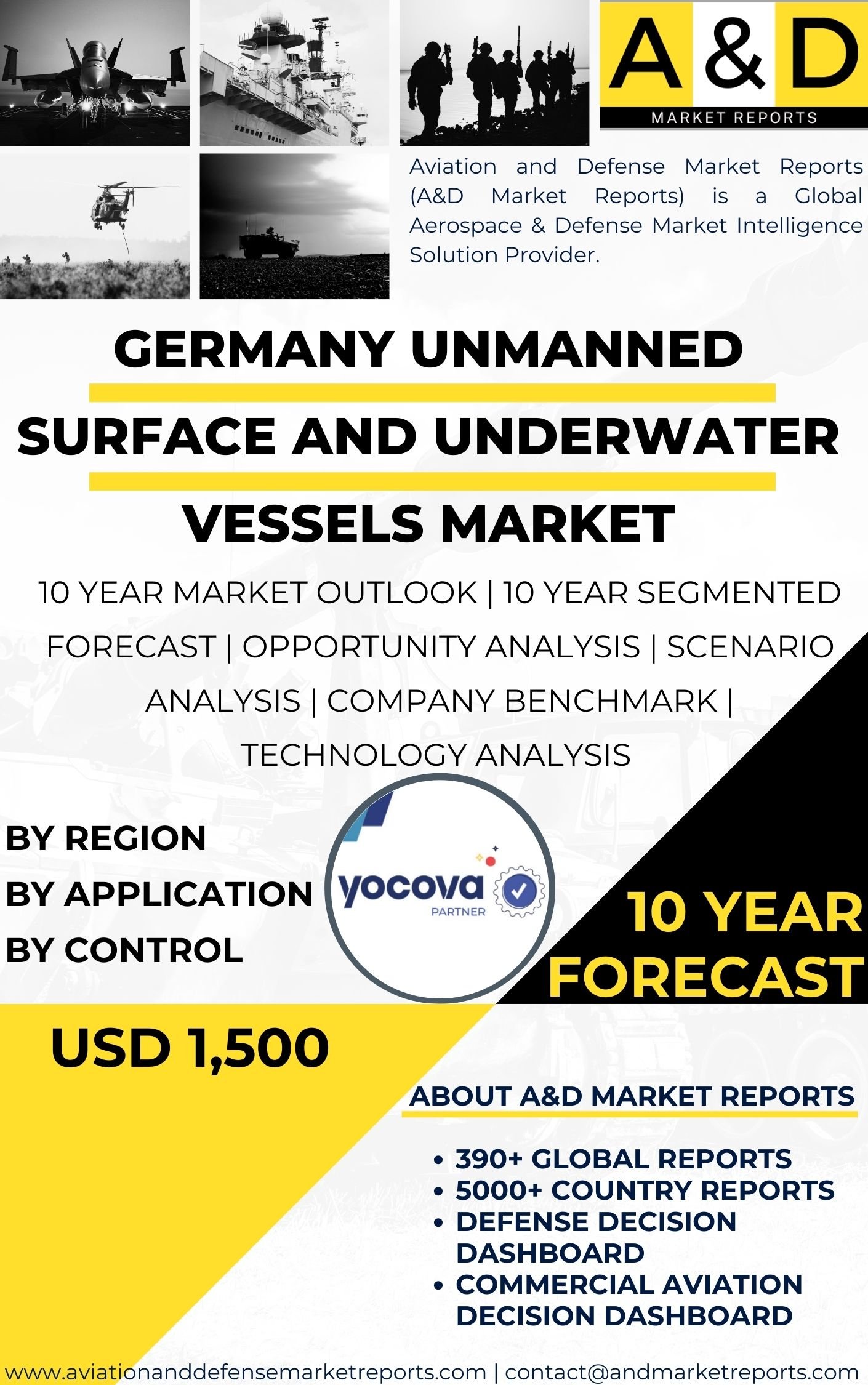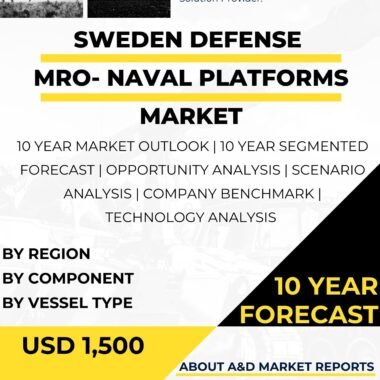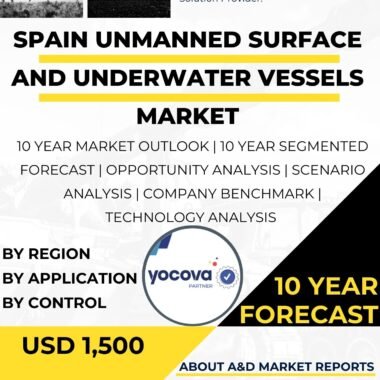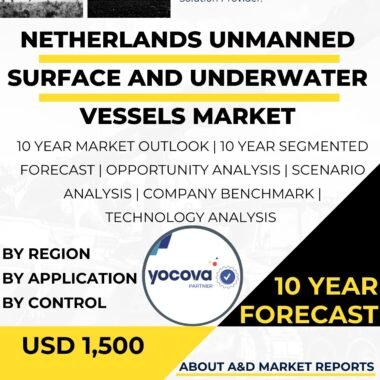Description
Germany unmanned surface and underwater vessels market has been a significant and dynamic segment within the country’s defense, maritime, and industrial sectors. Unmanned surface vessels (USVs) and unmanned underwater vehicles (UUVs) are autonomous or remotely controlled maritime vehicles that operate on the water surface or underwater without human crew. These advanced systems play a crucial role in enhancing Germany’s maritime capabilities, supporting ocean exploration and research, and driving innovation in the marine industry.
The Germany unmanned surface and underwater vessels market is influenced by several factors, including the country’s commitment to maritime security, its role as a key member of NATO, and its recognition of the importance of advanced autonomous technologies in ocean operations. As a leading European maritime nation with access to both the North Sea and the Baltic Sea, Germany understands the significance of investing in cutting-edge unmanned systems to maintain maritime superiority, safeguard its coastlines, and meet the challenges of the evolving security and environmental landscape.
The market encompasses both domestic production and imports of unmanned surface and underwater vessels and related technologies. Germany has reputable defense contractors, technology firms, and maritime companies that develop and manufacture a wide range of USVs and UUVs, including autonomous patrol boats, underwater drones for exploration and research, and remote-controlled submersibles for various commercial applications. Additionally, Germany collaborates with other countries and imports unmanned vessels to benefit from technological cooperation and meet specific operational and commercial requirements.
The Germany unmanned surface and underwater vessels market are characterized by a focus on innovation and technological advancements. Companies in Germany continuously strive to develop state-of-the-art USVs and UUVs with improved endurance, range, payload capacity, and communication capabilities. The integration of advanced sensors, artificial intelligence (AI), and data analytics has been a key area of research and development to enhance the performance and versatility of German unmanned maritime vessels.
The export potential of German unmanned surface and underwater vessels is another important aspect of the market. Germany’s reputation for producing high-quality and reliable maritime equipment has made it an attractive supplier for other countries seeking advanced unmanned solutions for maritime security, ocean research, and commercial applications. However, export decisions are subject to international regulations and political considerations, especially when it comes to the export of sensitive maritime technologies.
The Germany unmanned surface and underwater vessels market also address challenges related to safety and environmental considerations. As USVs and UUVs operate autonomously or under remote control, ensuring their safe navigation, collision avoidance, and compliance with maritime regulations is essential to prevent accidents and protect marine life. Additionally, as these unmanned vessels operate in sensitive marine ecosystems, ensuring environmental sustainability and minimizing the impact on the oceans is crucial.
In recent years, there has been a growing emphasis on the development of USVs and UUVs with multi-domain capabilities, enabling them to operate on the water surface and underwater seamlessly. Germany is investing in research and development to explore how unmanned surface and underwater vessels can support maritime surveillance, reconnaissance, mine detection, and environmental monitoring missions.
Challenges faced by the Germany unmanned surface and underwater vessels market include the need to adapt to evolving operational requirements and emerging technologies. As the nature of maritime operations, security threats, and ocean exploration evolve, USVs and UUVs must continuously evolve to meet new challenges, including the integration of AI, advanced sensors, and communication systems.
The market also needs to address concerns related to cost-effectiveness and the need to balance investments in unmanned maritime vessels with other defense, maritime, and industrial priorities. USVs and UUVs can be resource-intensive to develop, procure, and maintain. Decision-makers must carefully prioritize investments to ensure that unmanned surface and underwater vessels align with Germany’s broader defense, maritime, and industrial requirements.
In conclusion, the Germany unmanned surface and underwater vessels market is a significant and dynamic segment within the country’s defense, maritime, and industrial sectors. Advanced USVs and UUVs play a crucial role in enhancing Germany’s maritime capabilities, supporting ocean exploration and research, and driving innovation in the marine industry. The market is driven by Germany’s commitment to technological advancement, advancements in unmanned maritime vessels, and the need to balance investments with other defense, maritime, and industrial priorities. As Germany continues to invest in research and development and explores innovative unmanned solutions, the unmanned surface and underwater vessels market is expected to play an increasingly pivotal role in shaping the country’s maritime capabilities, supporting ocean research and exploration, and driving advancements in unmanned marine technology.




